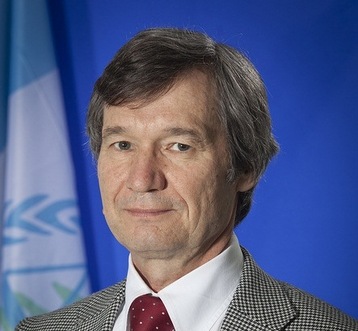Roux: STL Credibility Will Be Harmed if Prosecutor Doesn’t Present False Witnesses Documents
إقرأ هذا الخبر بالعربية
The head of the Special Tribunal for Lebanon’s Defense Office Francois Roux warned against measures that may affect the tribunal’s credibility, reported As Safire newspaper on Saturday.
He told the newspaper that the failure to hand former General Security chief Jamil Sayyed documents related to the false witnesses file may harm the STL’s credibility.
He made his statements in light of newly-appointed Prosecutor Norman Farrell’s refusal to respond to Sayyed’s demand to be handed the documents.
Roux stated that the prosecutor is obligated to perform measures that would help achieve justice.
On March 1, newly-appointed STL President Judge Sir David Baragwanath stated that the tribunal does not have jurisdiction in tackling the “so-called false witnesses file.”
He said: “We don’t have jurisdiction to tackle the false witnesses file until the Lebanese government, U.N., and Security Council agree to it.”
Jamil Sayyed, Mustafa Hamdan, Ali al-Hajj, and Raymond Azar were held by Lebanese authorities for nearly four years without charge over Hariri’s assassination.
They were released in April 2009 following a ruling from the STL that said that the available evidence “was not sufficiently credible” to hold the generals.
Addressing the accusations against four Hizbullah members of being involved in the assassination of former Prime Minister Rafik Hariri, Roux remarked that the case against them is not political, but it is simply linked to evidence.
The judges of the tribunal are not concerned with people’s political affiliations, but they only seek evidence that proves their involvement in the crime, said the head of the Defense Office.
Four Hizbullah members: Salim Ayyash, Mustafa Badreddine, Hussein Oneissi, and Assad Sabra are wanted for the February 2005 suicide car bomb attack in Beirut that killed Hariri and 22 others, including the suicide bomber.
Ayyash has been named in the indictment as coordinator of the assassination team.
Hizbullah chief Sayyed Hassan Nasrallah has said he doubted the four indictees will ever be found and has branded the tribunal a U.S.-Israeli conspiracy aimed at bringing down the party.
Ayyash and Badreddine face five charges including that of "committing a terrorist act by means of an explosive device" and homicide, while Oneissi and Sabra faced charges of conspiring to commit the same acts.



